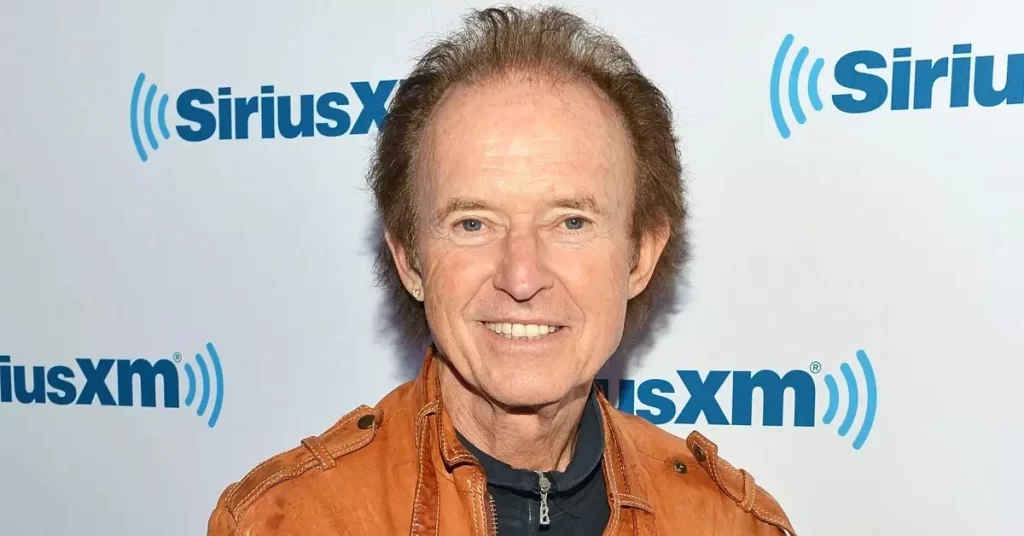Gary Wright Singer of ‘Dream Weaver’ and ‘Love is Alive’ Passes Away At 80 After Health Battle
In the hushed corridors of music history, where notes echo with the resonance of legends, there exists a melody that is forever etched – the melodic legacy of Gary Wright. A name that resonates with the essence of an era, Wright, the iconic singer-songwriter, bid adieu to the mortal realm at the age of 80, leaving behind a harmonious trail of memories and a legacy that will serenade generations yet unborn.
News of his passing, a result of a brave battle with Parkinson’s disease and dementia, was first reported by TMZ and subsequently confirmed by close friends. Gary’s son, Justin Wright, revealed that the gifted composer breathed his last in the comfort of his Palos Verdes Estates, California home on a somber Monday morning, September 4th. This sorrowful event unfolded six years after Gary Wright’s valiant fight against Parkinson’s, a battle further complicated by the onset of dementia.
Born in the vibrant heart of New Jersey in 1943, Wright’s journey through life was a tapestry woven with threads of extraordinary talent and unwavering passion. In his early years, the world knew him not only as a prodigious musician but also as a gifted child actor. His youthful charm graced television and radio commercials, casting a flicker of stardom upon his path. His presence on Broadway, notably in the musical “Fanny” in 1954, marked the beginning of a journey that would find its crescendo in the realm of music.
Yet, the allure of music had its siren song, beckoning him even as he ventured into the realms of academia. The pursuit of stability led him to the corridors of medical knowledge in the United States and West Germany. A noble endeavor, undoubtedly, but destiny had charted a different course. The strains of music, a symphony that coursed through his veins, called him back. The yearning to create, to express, and to touch the very soul of humanity through his tunes became his guiding light.
In 1967, the world witnessed the fusion of talent and destiny as Wright became an integral part of the British blues rock band Spooky Tooth. It was here, amidst the chords and harmonies, that his musical prowess found its voice. The stage was set, quite literally, for a solo career that would carve his name in the annals of music history.
But fate had another card to play – a card named George Harrison. The Beatles’ maestro and Wright shared not only a passion for music but also a profound interest in Indian spirituality. Their collaboration on Harrison’s 1970 album, “All Things Must Pass,” became the stuff of legends. Wright found in Harrison a spiritual mentor, a guiding star whose influence would resonate in his music for years to come. Throughout the 1970s, he lent his musical genius to all of Harrison’s solo albums, leaving an indelible mark on the soul-stirring notes that echoed Harrison’s legacy.
In 1975, Wright took a leap into the solo spotlight, releasing his magnum opus, “The Dream Weaver.” The album was more than a collection of songs; it was a musical odyssey that transcended the boundaries of conventional sounds. The titular track, inspired by Wright’s sojourns in India with George Harrison, became an anthem. Its haunting melody, woven intricately with synthesizers, painted dreams on the canvas of reality. “The Dream Weaver” was not merely an album; it was a testament to the power of innovation and the audacity to explore uncharted musical territories. A trailblazer, Wright was among the pioneers who embraced synthesizers, shaping the very landscape of modern music.
Yet, his influence did not merely echo through his solo works. His collaboration with artists like Jay-Z, Tone-Loc, and Eminem led to the integration of his music into the very heartbeat of contemporary tracks. Chaka Khan’s rendition of his 1984 hit, “Love is Alive,” reverberated through the airwaves, a homage to the timelessness of his compositions. The tendrils of his creativity even found their way into the realms of controversy when Judas Priest, in their rendition of a Spooky Tooth song penned by Wright, became embroiled in a court case concerning subliminal messages in song lyrics. In the face of scrutiny, his compositions stood tall, a testament to their enduring relevance and impact.
The 1980s and 1990s witnessed a slowdown in Wright’s solo career, a deliberate choice driven by his desire to prioritize his family. Yet, even in the gentle lull of those years, his influence remained omnipresent. His iconic “Dream Weaver” found a resurgence when it was re-recorded for the 1992 film “Wayne’s World.” The silver screen embraced his melody, immortalizing it for a new generation. In 2008, he embarked on yet another musical escapade, joining Ringo Starr’s All Starr Band on tour. It was a reunion with his own history, a chapter that had its roots in the timeless allure of his music.
As the world mourns the passing of this musical virtuoso, it is not merely an artist that we bid farewell to, but an era. Gary Wright’s journey was not just about melodies and rhythms; it was about breaking barriers and daring to dream. His music was not a mere arrangement of sounds; it was a symphony that echoed the human experience. In his chords, we found solace; in his notes, we found meaning.
As we remember him, let us not mourn the end but celebrate the immortal melody he gifted to the world. Gary Wright, the Dream Weaver, may have bid adieu, but his music, like a timeless lullaby, will cradle generations in its embrace, whispering the story of a man who dared to dream, and in doing so, wove a tapestry of melodies that will echo through eternity.



